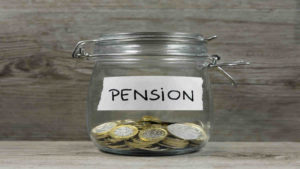These ASX small caps are rated by IBISWorld among Australia’s top 1000 companies

Which ASX stocks made IBISWorld's Top Australia 1000 companies?
Industry research company IBISWorld has revealed its top 1000 Australian companies in 2020 and several ASX stocks made the list.
The report claims to provide a thorough overview of Australia’s corporate landscape, highlighting the largest firms, growing and declining sectors and new businesses to watch in 2020-21 and beyond.
While 1,000 may seem like a large number this just a tiny share of the 2.2 million businesses in Australia.
Mining giants BHP (ASX:BHP) and Rio Tinto (ASX:RIO) came in at first and third while supermarket giants Woolworths (ASX:WOW) and Coles (ASX:COL) were second and fourth.
All of these but Coles made over $59 billion in revenue in the 2020 financial year.
Afterpay (ASX:APT) came in at 781st position despite increasing its revenues by over 100 per cent.
Small caps among Australia’s top companies
Beating Afterpay was transport operator Sealink Travel Group (ASX:SLK) which was 673rd and made $646.5 million in revenue.
SeaLink’s share price has increased by over 200 per cent in the past 12 months despite some of the company’s services being interrupted due to COVID-19 restrictions.
But it has benefited from being able to operate public transport services – a move IBISWorld said caused it to enter the list.
The gold and iron ore sectors were noted for having seen a stellar 11 months. One small cap mentioned was Mt Gibson Iron (ASX:MGX) which increased its revenues by nearly 60 per cent.
Larger caps receiving a hat tip included Silver Lake Resources (ASX:SLR) as well as merger partners Saracen (ASX:SAR) and Northern Star (ASX:NST).
Industries singled out were the coal mining and superannuation fund industries.
Whitehaven Coal (ASX:WHC) received the sufferers tag, notching up a 30.8 per cent decline in revenue. IBISWorld credited falling coal prices, COVID-19 induced production shutdowns as well as China’s ban on Australian coal imports.
As for superannuation funds, ASX investors UniSuper and AustralianSuper both saw revenue declines of over 67 per cent.
IBISWorld noted the Morrison government’s scheme allowing Australians to withdraw from their super smashed the pair with the latter of these seeing 360,000 members withdraw and the whole industry losing up to $99.6 billion.
Related Topics
UNLOCK INSIGHTS
Discover the untold stories of emerging ASX stocks.
Daily news and expert analysis, it's free to subscribe.
By proceeding, you confirm you understand that we handle personal information in accordance with our Privacy Policy.








